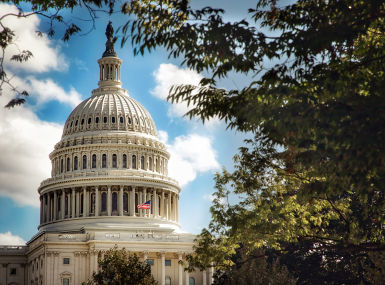Improving access to federal grants through the Streamlining Federal Grants Act

Key Takeaways
Complicated processes to apply for federal grants often cause underserved communities to miss out on crucial funding opportunities. Senate Bill S. 2286, the Streamlining Federal Grants Act, simplifies federal grant application processes to increase access to federal funding opportunities.
Here’s more about the bill:
- The bipartisan Streamlining Federal Grants Act was introduced by Senators Gary Peters (D-MI) and John Cornyn (R-TX).
- The Act directs the Office of Management and Budget to issue guidance to federal agencies on how they can simplify and streamline their grant application process.
- By improving the process to apply for federal grants, the burden on the applying organization would be eased, resulting in more efficient distribution of federal grants to communities with the highest need.
If enacted, the bill would make sweeping changes to the federal grants process, including giving local organizations a more prominent voice in improving grant administration processes.
The bill would:
- Require that non-federal entities, including county governments, have a regular and ongoing part in the consultation process of each agency’s efforts to streamline grant funding processes.
- Establish a Grants Council under the supervision of the Director of the Office of Management and Budget.
- Require that funding notices use plain language, list availability, contact information, training and assistance related to applying for grants, administration and reporting requirements and provide short general summaries.
Counties support the Streamlining Federal Grants Act and other efforts to increase the accessibility of funding to county governments.
Here’s why:
- Counties often face challenges in applying for complex federal grants due to resource constraints.
- A simplified federal grant administration process enables easier access to federal resources for our nation’s counties.
- This bill would reduce barriers to entry by improving interagency coordination, supporting under-resourced counties in the application and reporting process and reauthorizing federal grant reform legislation.









